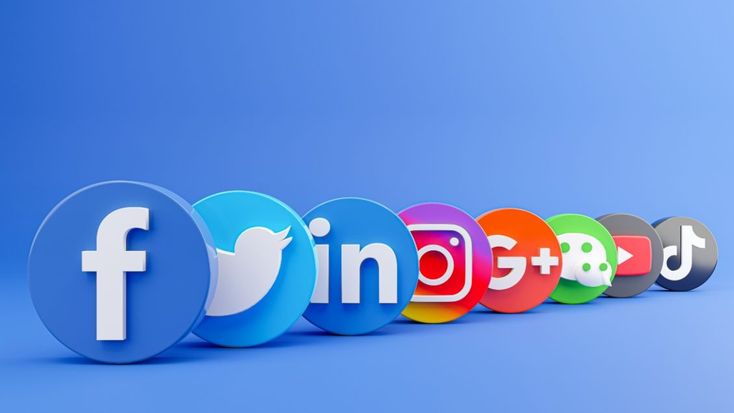
In today’s digital age, social media has revolutionized the way businesses connect with their audience. From small-scale enterprises to multinational corporations, leveraging social media platforms has become imperative for sustained growth and success. In this blog, we delve into the profound impact of social media marketing across various aspects of business operations, from human resources to customer care and sales.
Why Social Media Marketing? Social media platforms offer unparalleled reach and engagement opportunities, allowing businesses to connect with their target audience in real-time. With billions of active users across platforms like Facebook, Instagram, Twitter, and LinkedIn, the potential for brand visibility and customer interaction is limitless. Moreover, social media marketing is cost-effective compared to traditional advertising channels, making it accessible to businesses of all sizes.
Impact on Small-Scale Business: For small-scale businesses with limited resources, social media marketing levels the playing field by providing a platform to compete with larger competitors. Through targeted campaigns and creative content, small businesses can reach their niche audience, build brand awareness, and drive sales without breaking the bank. Social media also fosters direct communication with customers, enabling personalized interactions that cultivate loyalty and trust.
Impact on Large-Scale Business: Even for large-scale enterprises, social media marketing offers invaluable benefits. Beyond brand promotion, social media serves as a valuable tool for market research, allowing businesses to gather insights into consumer preferences, trends, and sentiment. By harnessing data analytics and social listening tools, large businesses can refine their marketing strategies, optimize campaigns, and enhance overall performance.
Impact on Human Resources: Social media has transformed the recruitment landscape, enabling businesses to attract top talent through targeted job postings and employer branding initiatives. Platforms like LinkedIn facilitate professional networking and talent acquisition, streamlining the hiring process and expanding the pool of qualified candidates. Additionally, social media platforms serve as internal communication channels, fostering collaboration and knowledge sharing among employees.
Impact on Customer Care: In the realm of customer care, social media acts as a frontline channel for addressing inquiries, resolving issues, and providing timely assistance. With the prevalence of social customer service, businesses can deliver personalized support experiences, enhancing customer satisfaction and loyalty. Quick response times and proactive engagement demonstrate a commitment to customer care, bolstering brand reputation and fostering positive word-of-mouth.
Impact on Sales and Marketing: From lead generation to conversion, social media plays a pivotal role in the sales and marketing funnel. By crafting compelling content and targeted advertisements, businesses can drive traffic to their websites, generate leads, and nurture prospects through strategic engagement. Social selling, the practice of leveraging social networks to identify and connect with potential customers, has become a cornerstone of modern sales strategies, enabling businesses to cultivate relationships and drive revenue growth.
Social media encompasses a wide range of online platforms and formats that facilitate social interaction, content sharing, and collaboration. Here are some categories of social media along with examples:
- Social Networks: These platforms focus on connecting people and facilitating social interactions, often centered around profiles, friend networks, and messaging features.
- Examples: Facebook, Twitter, LinkedIn, Instagram, Snapchat, TikTok.
- Bookmarking Sites: These platforms allow users to save and organize links to web pages or resources for later reference or sharing.
- Examples: Pinterest, Flipboard, Pocket, Mix.
- Media Sharing Platforms: These platforms specialize in sharing various forms of multimedia content, including photos, videos, and audio recordings.
- Examples: YouTube, Vimeo, Flickr, Imgur, SoundCloud.
- Blogs: Blogging platforms enable individuals or organizations to publish and share written content, often in the form of articles, essays, or personal narratives.
- Examples: WordPress, Blogger, Medium, Tumblr, Wix.
- Discussion Forums: These platforms facilitate online discussions and community interactions around specific topics, interests, or niche subjects.
- Examples: Reddit, Quora, Stack Overflow, Disqus, Yahoo Answers.
Conclusion: In conclusion, social media marketing has emerged as a cornerstone of contemporary business strategy, offering myriad opportunities for growth, innovation, and customer engagement. Whether you’re a small-scale startup or a multinational corporation, harnessing the power of social media can propel your business to new heights, fostering connections, driving sales, and fostering lasting relationships with customers and stakeholders alike. Embrace the social media revolution, and unlock the full potential of your business in the digital age.



